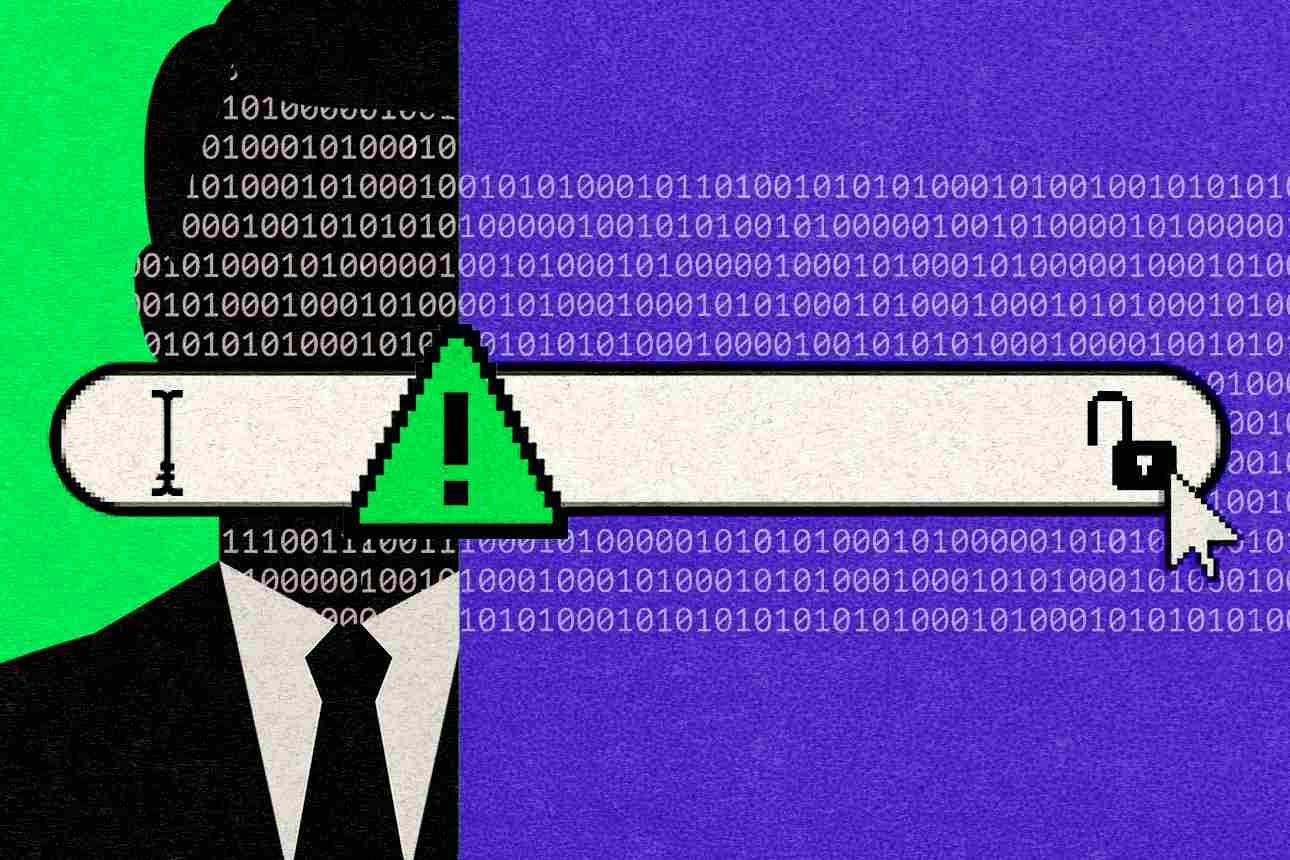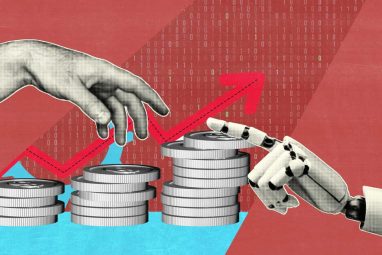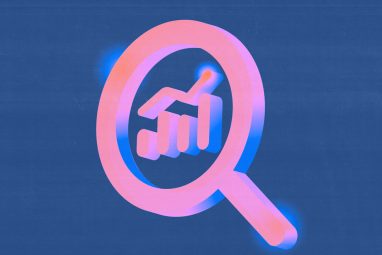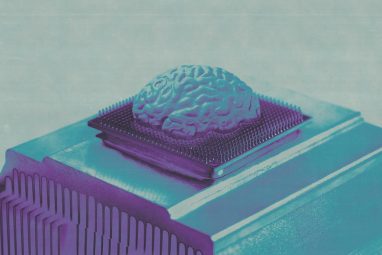AI Unlocks New Power for Employees: Are HR Leaders Ready?
As we now know from the phenomenon of ChatGPT, generative AI has the potential to unlock trapped information from thousands of sources in an organization.
Topics
News
- UAE Banks Phase Out OTPs Amid Fraud Surge
- Data Leak at Abu Dhabi Finance Week Exposes Details of 700+ Delegates
- Alibaba’s Latest Open-Weight Qwen3.5 Enters a Crowded Field
- MBZUAI Secures $1M from Google.org to Narrow AI’s Language Divide
- UAE Emerges as Global Powerhouse, 42% of Firms Named ‘AI Leaders’
- Riyadh Launches Automated Traffic Compensation Under Osool Program

Carolyn Geason-Beissel/MIT SMR | Getty Images
A new dynamic for human resources is upon us: the era of intelligence, driven by artificial intelligence. As we now know from the phenomenon of ChatGPT, generative AI has the potential to unlock trapped information from thousands of sources in an organization. Once a company starts building a large language model (LLM), it can collect data from HR, finance, recruiting, and other systems like a vacuum cleaner. Every process document, training program, compliance rule, and policy that gets input into the LLM will suddenly be available to any employee by asking the system a simple question. The new freedom and power this technology offers has the potential to make accessing useful information easier and faster than at any time in the past.
Consider a sales rep, marketing manager, or finance director who is searching for information across customers, products, or business results to help them do their job. Rather than having to track down all sorts of people for help (or, in a more long-term way, ask IT to build more portals and tools), they may be able to find what they’re looking for through the company chatbot. That will make them more interconnected and more productive much more quickly.
The system will help HR business partners as well, by providing faster access from the LLM to data on pay levels, retention, and employee engagement across their teams.
The rapid development of generative AI products poses a critical question: Is your HR team ready to help employees — and HR team members — take advantage of the potential of generative AI? Are they ready to oversee these steps into the brave new intelligent world?
Evolution of the Intelligence Era
Let’s step back and reflect on how we got to where we are. The American economy has evolved through four stages: the pioneer era, when we explored the country; the industrial era, when we built manufacturing, transportation, and energy companies; the information era, when IT and computing created new business models and tools; and now the latest stage, the intelligence era, in which all of this information will be integrated and brought to our fingertips.
During each of these periods, the role of workers changed. In the early days, we worked on farms, operating as small families and groups. The industrial era brought about new ideas of management and labor and gave us the “job description,” which cast many workers as replaceable parts. The information era created a new role for professionals, empowering many of us to be managers, technologists, and leaders. The intelligence era will go further, enabling us all to be turbocharged workers with access to information like never before.
It’s important to keep in mind that the COVID-19 pandemic created unprecedented employee mobility. This fluidity, coupled with remote work (which lets employees switch employers at a lower cost), created a massive shortage of talent. As I write this, the unemployment rate in the U.S. is just 3.6%. In response, HR organizations have embraced a flood of new ideas, innovations, and creative solutions: skill taxonomies, talent marketplaces, and a focus on pay equity, pay transparency, well-being, and employee experience. These programs were born out of necessity, and they’ve forced HR professionals to be much more strategic.
That ability to be strategic about skill-building and technology will be tested by the huge leap that AI is poised to bring. Soon, each employee will be able to add value in unique and special ways. The intelligence era has the potential to make us all experts at many new things, and as we access and consume more broad, cross-company information, we’ll expand our roles and our perspectives at once.
Capability Needs to Be Tempered by Caution
In the past few months, I’ve been amazed at how new technologies have allowed employees to do things that would have been impossible just a year ago. I’ve seen generative AI systems that can automatically create courses and assessments and assemble content to help people learn in the flow of work. I’ve seen people develop platforms that send alerts based on a wide variety of business conditions (such as when a customer doesn’t renew). Health care professionals are now able to index patient diagnostic notes in ways that predict risk, look for possible new illnesses, and diagnose disease. These will be the types of innovations that drive success in the future.
As I’ve learned from my ongoing dialogue with enterprises, these new systems will be disruptive. Learning and development leaders find themselves having to work through questions like, “If we give an employee a highly intelligent system that recommends actions and possibly answers almost any question on the topic, what is the role of traditional training?” Chief human resources officers need to ask, “How do older systems stay relevant?” And across organizations, everyone will need to consider whether the AI-provided answer is correct.
Indeed, explaining when to question these tools — along with teaching employees (and HR professionals) how to prompt them to give the answer they’re looking for — is very much the next hill to climb with AI. We all know that the technology isn’t perfect. Many users point out that even the models of ChatGPT developer OpenAI, which are as advanced as any, consistently hallucinate (a polite way of saying that they make stuff up, including authentic-sounding citations and facts). There may be issues in the underlying technology itself; a recent study found that OpenAI’s GPT-4 LLM, for example, has become “less smart,” and researchers aren’t sure why that is. We will need our employees to learn when to question the results, since they may not be as dependable as their familiar sources, such as a traditional financial report.
This opens up a new role for HR. Companies are not simply a collection of high-powered individuals. While employees might become superpowered through AI, HR leaders need to think about how they extract knowledge from these systems, decide who is responsible for what decision, and set up proper governance, feedback loops, and ongoing learning for generative AI.
My team recently started a series of conversations with HR leaders about their generative AI projects, and they described many new challenges: How do we focus these tools on the right problems and not let them turn into generic query systems that don’t do anything very well? How do we prepare line employees for systems that are “mostly right” but might have biases or provide incorrect answers? How do we upskill or retrain knowledge workers who find that a significant part of their job was just automated?
I’ve been studying HR practices for more than 20 years. I would venture to say that the arc of ideas like empowerment, flattened leadership structures, a simplified job architecture, continuous development, and career pathways are now taking root at precisely the right time to grapple with generative AI’s challenges and opportunities.
HR Will Need to Step Up
In this new world, we will all be competing to attract skilled employees and accelerating how we look at job design and team structure. My organization’s newest research on high-performing companies by industry (our Pacesetter data) found that high-performing companies are not only filled with skilled people but also masters of change and transformation. For example, high-performing companies have 30% to 40% more people focused on training, change management, and team design than lower performers do.
This points to the next evolution of HR as a practice, where AI will help provide the data but also the sophisticated tools for a much more science-based process, designing better teams, better jobs, and placing the organization on a firmer foundation for longer-term growth and agility. AI will not only provide employees the insights on learning, experiences, and tips they need to flourish; it will also help teach managers whom to hire and promote as well.
HR professionals have the opportunity to take the lead in this new era, but only if they step up to the challenge. HR leaders must learn about these AI tools and prepare to integrate them with their experience with organization design, training, rewards, and leadership. They will have to be willing to experiment and develop a deeper armory of skills.
Sound like a lot to handle? To me, our field has no choice. The AI wave has arrived. If we all lean in and learn, we can thrive in the new AI-powered era.








